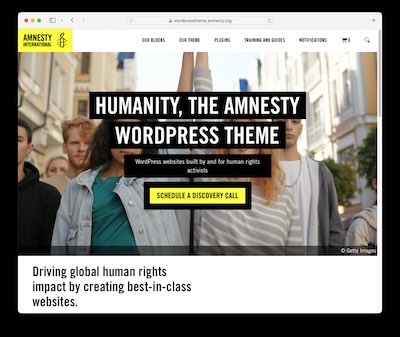Updated Sep 30, 2024.
Last week, Matt Mullenweg posted an article on WordPress.org highlighting some concerns about private equity investments and their inherent conflicts with the principles of open source software. Followed by a “spicy” talk at WordCamp US, this opinion (which singled out a particular company, WP Engine) has led to lawsuits and division in the WordPress developer community. I have been following the news at a distance, and I am not interested in taking sides at this point, but I did want to give my perspective on the controversy and what it means for WordPress users.
First, some background. If there is a single person behind WordPress, that person is Matt Mullenweg. WordPress, the software project, dating back to 2003, was his idea. But I want to emphasize the fact that WordPress does not belong to Matt, and it does not rely on his involvement in any fundamental or essential way. WordPress is the result of contributions from thousands of developers from across the world. As an open source project, the software is not owned or controlled by anyone. Since 2010, WordPress, its branding, and the leadership of its development goals, has been managed by the non-profit WordPress Foundation. Although Matt sits on the board of this organization, the WordPress Foundation officially separates any legal matters and governance related to WordPress from Matt as an individual or his for-profit enterprises. In other words, while Matt is still intimately involved in the project, it is organized in such a way that it can and will continue long into the future, whether Matt (or any other individual) keeps contributing or not.
To keep things confusing, Matt Mullenweg also happens to be responsible for Automattic, a for-profit corporation that provides WordPress hosting, including a custom-built platform based on the WordPress software base called WordPress.com.
When Matt speaks about the WordPress project and against specific actions (or inactions) from WP Engine, he speaks with authority as founder of the project and as CEO of Automattic. But, by way of the very nature of the project, Matt cannot speak for the WordPress community as a whole. That community is far to diverse and diffuse to have a single person speak for everyone.
I have incredible respect for WordPress as a project. Likewise, I respect Matt for his contributions and his vision. As it happens, I also have an element of respect for WP Engine, for being one of the most robust and successful hosting platforms that keeps WordPress websites going strong. But regardless, I want to ease any concerns about what the current lawsuits might mean for the future of WordPress as a whole. These actors are in the public eye, and as such their words and opinions are given a lot of weight. But there are many thousands of developers and contributors who will keep the WordPress project going long into the future, no matter what happens between these individuals and corporations.
To illustrate one example that gives me hope about the future of WordPress: Amnesty International and its partners have built a website theme and development system, and they have chosen to make it available to the public through open source. The tools they have provided are among the many thousands of projects, plugins, and support structures that continue independently of any top-down decisions from corporate leaders.

I, for one, look forward to the future of WordPress. I wish the best for Matt and WP Engine to find a solution to their differences, but whatever happens does not have any direct bearing on the long-term success of WordPress as a platform.
Other Perspectives
I am certainly not an expert on the ins and outs of the WordPress community. Here are some perspectives from other folks in this space:
“We are WordPress” by Mike McAlister, with a reminder of what makes WordPress what it is: “It is the operating system for half of the entire web. … And that’s not because of any one person or company — that’s because of us.”
Joost de Valk (first author of one of my favorite plugins, Yoast SEO) with some ideas on transparency for the WordPress project and community.

Leave a Reply